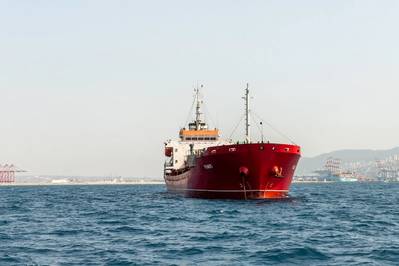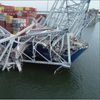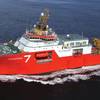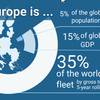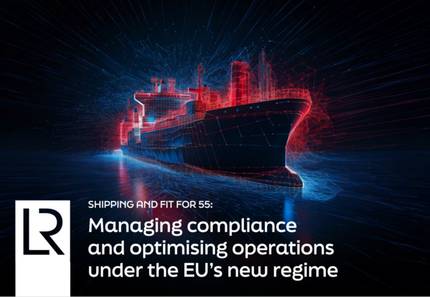Israel Highlights Fragility of New Trade Corridors
A new and deadly chapter of the decades-old Israel-Palestinian conflict is a reality check for an ambitious trade route. The India-Middle East-Europe Economic Corridor (IMEC), championed by Washington last month on the sidelines of the G20 summit in New Delhi and dubbed a Western rival to China’s Belt and Road, had much to prove anyway. The latest conflict presses pause on any grand financial visions involving the neighbourhood.
IMEC’s chief backers waxed lyrical about the potential of the trade route involving railways, ports and green energy. U.S. president Joe Biden called it a “really big deal”, while European Commission President Ursula von der Leyen boasted of a “green and digital bridge across continents and civilisations”. For his part, Indian Prime Minister Narendra Modi described the IMEC as the “basis of world trade for hundreds of years to come”. It is part of wider G7 plans to mobilise $600 billion by 2027 into global infrastructure investments.
The IMEC offers huge potential, not least because it would reduce shipping times by as much as 40%. Demand is there: India's total trade with Saudi Arabia more than doubled in two years, hitting around $53 billion in financial year 2023. But the real prize for New Delhi would be to forge a stronger relationship with Europe, its third largest trading partner.
Ties between India and the Gulf have significantly warmed, but the corridor requires a reliable link between Saudi Arabia and Israel before goods can be eventually shipped to Europe from the port of Haifa, acquired this year by India’s Adani group.
Yet it is riskier now for Saudi Crown Prince Mohammed bin Salman to normalise diplomatic relations with Israeli Prime Minister Benjamin Netanyahu. Popular sentiment in the Arab world sits with Gaza, into which Israel is launching retaliatory strikes. The record mobilisation of Israel's army reservists suggests a return to the previous status quo is a long way off, and the overall violence which has claimed more than 1,500 lives may continue to rise.
The IMEC represents a long-term vision, as does a pivot by China toward Middle Eastern capital as American funds pull back from the People’s Republic, whose own infrastructure project ran into debt problems. Those new plans may now take a backseat. In the near-term, the Suez Canal will remain the primary route for goods travelling to Europe from India, while Turkey can press its own rival trade route. War is an unwelcome reminder that reconfiguring global trade and financial routes is hard work.
Context news
The India-Middle East-Europe Economic Corridor (IMEC) was announced by the United States, European Union, India, Saudi Arabia, France, and Germany on the sidelines of the G20 summit in Delhi on Sept. 9.
Comprising two multi-modal separate corridors - the east connecting India to the Arabian Gulf and the northern part linking the Gulf to Europe - the IMEC is “expected to stimulate economic development through enhanced connectivity and economic integration between Asia, the Arabian Gulf, and Europe".
The Biden administration is continuing to push for normalization talks between Saudi Arabia and Israel, the New York Times reported on Oct. 8.
(Reuters - Editing by Una Galani and Thomas Shum)



